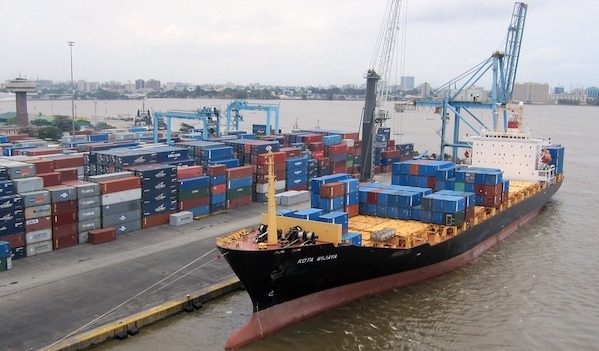Seaports are major points of entry where vessels load and unload cargo and passengers.
So what happens if a ship arrives in a Nigerian seaport and the crew members are sick with an infectious disease?
If not quickly identified and properly managed, these kinds of health emergencies and disasters at seaports – from infectious disease outbreaks to explosions to chemical spills – can escalate rapidly and affect not only the health of the people and operations of the port, but also the health and the economy of the country as a whole.
That’s why we partnered with ProHealth International to develop Nigeria’s first ever Public Health Emergency Contingency Plan for a seaport: Apapa Seaport in Lagos, the largest seaport in the country.

What exactly did we do?
In December 2019 – before the COVID-19 pandemic began – we started working with stakeholders within the seaport to develop an emergency plan to guide them on what do to when various public health emergencies arise.
We established a core team which included representatives from Port Health Services, Immigration, Customs, Nigerian Ports Authority, Police, Fire Services, private clinics, shipping companies, and several others. Together with this group, we spent 8 months developing a comprehensive plan and operating procedures to address all public health emergencies within and around the seaport.

Unfortunately we didn’t get to finish the plan before the COVID-19 pandemic began, but we’re happy to say the plan is now complete!
What’s next?
We have to ensure all stakeholders have practiced what to do in case of an emergency so our next steps are to fully operationalize the plan through simulations and drills that will help us test the plan and identify any issues or gaps. If you know us, you know how much we love simulation so stay tuned!




